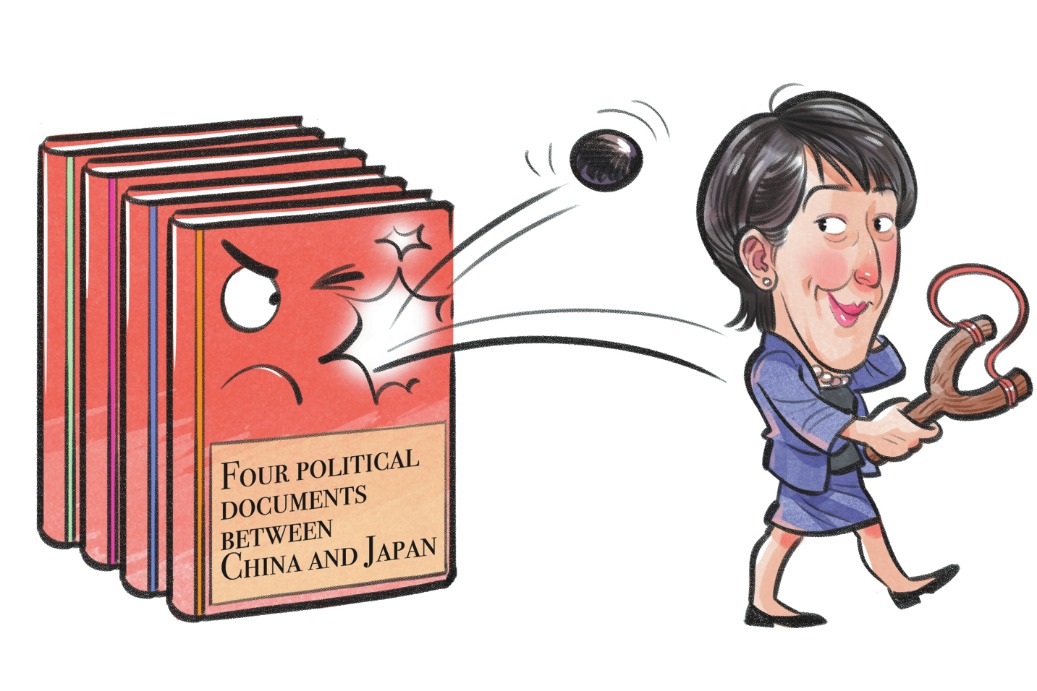Progress in post-crisis psychological assistance


Editor's note: This year marks the 15th anniversary of the devastating 2008 Wenchuan Earthquake, and over the past decade and a half China's post-disaster psychological assistance has made significant progress. From May 10 to 13, psychologists gathered at the Third Beichuan International Forum on Psychology, jointly organized by Southwest University of Science and Technology, and the Institute of Psychology of the Chinese Academy of Sciences, in Mianyang, Sichuan province, to share their experiences and the lessons learned in disaster-induced psychological crisis intervention and socio-psychological services. Following are excerpts from the papers delivered by three experts:
Building a foolproof psychological aid system
The 20th National Congress of the Communist Party of China emphasized that national security is the foundation of the rejuvenation of the Chinese nation and social stability a prerequisite for enhancing national strength. Among the many factors that affect national security and social stability are natural disasters, public health emergencies, and social security incidents.
Strengthening emergency management is therefore necessary to overcome risks and challenges. Emergency socio-psychological services are an organic component of China's emergency response system, as they help enhance people's sense of gain and happiness, and make them feel more secure.
China's post-disaster psychological intervention has made remarkable progress over the past three decades. Mental health expert teams, mainly composed of psychiatrists and psychologists, helped lessen people's post-disaster trauma by providing them with psychological assistance after the devastating Wenchuan Earthquake in 2008.
With the government according priority to post-disaster psychological first aid and counseling, psychologists and psychiatrists played an important role in post-disaster relief, although the situation in some quake-hit areas became somewhat chaotic with many teams of psychologists and psychiatrists flocking there to offer assistance. Psychological assistance providers require professional knowledge and skills, but many quake survivors were "forced" to accept non-professional services provided by amateur volunteers, which in quite a few cases didn't work.
However, the tireless work of post-disaster first aid and therapy providers after the COVID-19 pandemic broke out showed that China had made great progress in this field since the Wenchuan Earthquake. Also, in 2021 the National Health Commission and eight ministries issued a document to improve counseling services at hospitals.
The Wenchuan Earthquake was the first time that post-disaster psychological intervention was included in the medical plan to deal with a public health emergency in China. This prompted research and teaching institutions and organizations across the country to provide psychological services and scientific support for the frontline medical workers through hotlines, online psychological counseling, public lectures, popular science articles and other means.
As a result, a large number of self-help apps and mini-programs, such as wearable emotion sensors, emerged during the pandemic, so did apps providing access to online counseling.
Although the scale of emergency psychological service teams has expanded, and psychological intervention methods have improved over the past decades, there is still room for improvement. It is necessary therefore for the authorities to issue proper guidelines to ensure such services can be provided more easily and timely.
There is a need to streamline the management system for such services, too. Providing emergency psychological assistance requires coordination among multiple departments and legal support to ensure they are provided timely and effectively.
Also, information sharing is important. During earlier major emergencies, individuals and organizations in need of psychological assistance did not know who to turn to for help, and a large number of psychological service teams did not know how and whom to provide such assistance. Whether or not disaster information and emergency resources can be shared by different government departments has a significant impact on the collaborative efforts of rescue and relief teams in the aftermath of a major disaster.
Besides, research support needs to be strengthened. In particular, research aimed at solving the problems faced by emergency psychological assistance providers is weak.
Many countries have established emergency management systems, and each has its unique characteristics. But some features are common to all. First is the capability to shift from a single-disaster type and departmental management system to a multi-disaster management system. Second is the means to transition from a governmentled management system to a multi-party governance system. Third is the ability to shift from a post-disaster response system to a comprehensive disaster-management system. And fourth is having the potential to transition from a basic emergency management system to an advanced emergency management mechanism.
Having said that, there is no doubt that China's psychological assistance system has made remarkable progress over the past decades and accumulated rich experience, providing a solid foundation for the development of a modern, comprehensive post-disaster psychological assistance system, and offering valuable reference to other countries to deal with emergencies.
Chen Xuefeng, deputy director at the Institute of Psychology, University of the Chinese Academy of Sciences
The role of psychologists in fighting relative poverty
According to the 20th Party Congress report, China's modernization is a means to achieve common prosperity. China has already lifted more than 800 million people out of extreme poverty, but to achieve common prosperity, it needs to narrow the wealth gap and eradicate relative poverty, by taking measures to increase low-income people's earnings in order to ensure people who have emerged out of poverty don't slip back into poverty again.
But how do we achieve this goal?
Poverty-alleviation theories and practices mostly focus on providing material assistance for the poor. They don't pay enough attention to the psychological and behavioral characteristics of the impoverished people or their self-development capability.
Psychologists are best placed to address this issue. In fact, advancements made in the field of psychology and the key role psychologists have played in poverty alleviation in many places offer a way to address the problem.
The most critical factor for establishing a mechanism to address the issue of relative poverty is igniting the potential of people living in relative poverty to overcome the odds to improve their lives. It is important to stimulate such people's creativity and motivate them to overcome poverty.
The high-pressure environment of modern society can easily create a "scarcity mindset" among low-income people, often prompting them to pursue short-term goals and ignore long-term benefits, by not investing enough in their children's future. Such a mindset compels them to make inappropriate economic decisions, making it difficult for them to emerge from relative poverty.
For example, some impoverished people tend to take loans on high interest rates and, as a result, save less, spend more on tobacco, alcohol and other unnecessary goods, buy more lottery tickets, and invest less in their children's education, which affects their ability to improve their lot and pushes them into a circle of "poverty, decision-making behavior, poverty".
To break this circle and improve the psychological development of the bottom-tier population, conditional cash transfers can be used as an effective tool. Conditional cash transfers involve providing cash subsidies for impoverished families on the condition that they use the money to improve the health and education of their children, thereby enhancing their human capital. Early childhood poverty can affect a child's intellectual and cognitive development. And early intervention through conditional cash transfer can change this trend.
Incentivizing families to invest in their children's health and education has become one of the most widely adopted poverty reduction measures in developing countries. It helps break the vicious circle of "poverty-lack of education-poor health-poverty" which has entrapped many families for generations.
Measures to help reduce cognitive resource depletion among the poor in the decision-making process, improve poverty alleviation policies, and remove the participation barriers are some other methods to help the poor make reasonable financial decisions and break free from poverty.
Scientific guidance, too, can be used as a direct intervention tool to influence decision-making behavior and promote rational decision-making. For example, giving savings reminders or lockable piggy banks to poor households can, to some extent, increase their savings.
Psychological interventions for prevention or treatment of post-traumatic stress disorder (PTSD), too, can improve poverty alleviation work. In addition, reducing social restrictions, promoting social mobility, and encouraging low-income people to pursue long-term goals can also help achieve common prosperity.
Guo Yongyu, a professor at the School of Psychology, Nanjing Normal University
How to improve post-crisis psychological assistance
I have provided psychological assistance for survivors of four major natural disasters around the world: the 1995 Great Hanshin Earthquake in Japan, the 2004 Sumatra-Andaman Earthquake, the 2008 Wenchuan Earthquake in China, and the 2011 East Japan Earthquake. Through these experiences, I have come to realize there are many misconceptions surrounding post-disaster psychological assistance.
For instance, some people believe that once a city or town or countryside is rebuilt and economic work resumes, survivors' psychological distress will naturally dissipate, so there is no need for concern. Others assume the peak of post-disaster stress occurs shortly after the disaster strikes, and that it naturally decreases over time.
Many people also mistakenly believe the most common psychological disorder following a disaster is PTSD, which some consider to be a form of mental illness. Some even believe the best way to provide post-disaster psychological assistance is by encouraging survivors to express or release built-up stress through words and pictures.
These are misconceptions. They are assumptions that don't have any scientific basis. There are three key considerations for providing psychological assistance after natural disasters.
First, psychological assistance providers or organizations that cannot guarantee sustained support for disaster survivors should not have direct contact with them. If contact is necessary, it should be done in collaboration with local aid workers, including mental health professionals and teachers.
Second, encouraging survivors to express their fearful emotions, such as having children draw or write about a quake, can lead to secondary psychological trauma among survivors in areas where there is a lack of safety and continuous support, especially immediately after a disaster occurs when there is no one to provide sustained assistance.
And third, the assessment of psychological trauma (such as impact of event scale-revised and PTSDerectile dysfunction) can also cause secondary psychological trauma if psychological assistance is provided without adequate support and follow-up care. In addition, psychological education and proper evaluation, conducted by individuals or organizations that can provide continuous assistance, should include one-on-one counseling.
Yoshiki Tominaga, a special-appointee professor at the Graduate School of Disaster Reduction and Reconstruction Policy, University of Hyogo in Japan
The views don't necessarily represent those of China Daily.


































